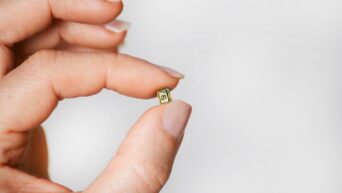
Credit: Huami
Necessity is the mother of invention, as they say.
We’re a few months into this pandemic of ours, and I bet a few of you are getting tired of wearing face masks, right? Well, tough. I wear a mask every time I go out, and it sure as heck isn’t because I like it, but it’s the most efficient, effective way we have of keeping viral particles from spreading around. That being said, if you’re not one of the lucky ones to have access to a supply of medical-grade masks, you’ve probably had to settle for a simple cloth mask. Cloth masks work fine, but you do have to clean and care for them, which can be annoying, plus they can’t always block smaller particles. Luckily, we have technology to make our lives a little easier (which we could certainly use more of right now).
Chinese tech company Huami, most well-known for their line of wearable fitness trackers, is currently developing a high-tech face mask that’ll keep your mouth and nose clean and look cool doing it. Named the Amazfit Aeri mask, this fancy gadget is sort of like a mid-point between a face mask and a gas mask. The front is made of a transparent material, while the sides of the mask contain special filters guaranteed to keep viral particles big and small at bay. Unlike a gas mask, though, these filters have a secret: built-in ultraviolet emitters. Just plug the mask into a typical USB-C charger, and the emitters activate to vaporize any foreign particles in the mask and filters. Huami claims that with regular sterilization, you could make a single pair of filters last for a month and a half.

Credit: Huami
Incidentally, if you miss unlocking your phone with your face ID, the Aeri mask’s transparent, anti-fogging material would allow your phone to see your face clearly. Huami is also mulling over a modular design that would allow you to attach extra gadgets like a little fan or eye shield, which would make jogging with the mask on a little less suffocating.
The Aeri mask is still in the prototype stages, and according to Huami, it could take anywhere from six months to a year for a production model to hit shelves. In a perfect world, we’ll already be past the worst of the pandemic by then, but in the event we aren’t, it’s good to know technology will keep pace with the populace’s needs.
































